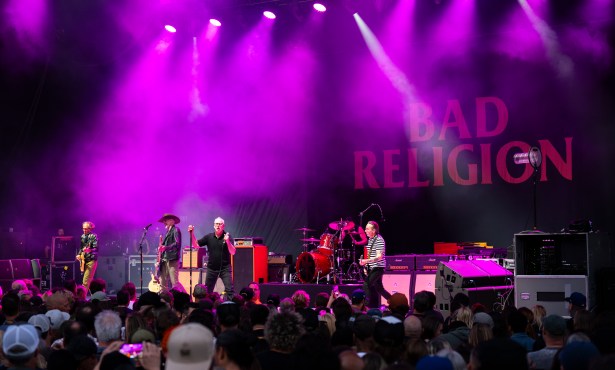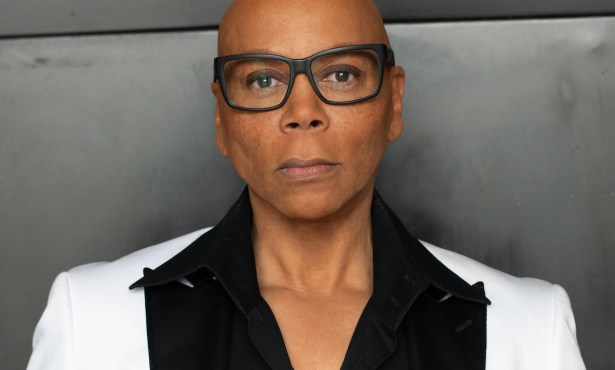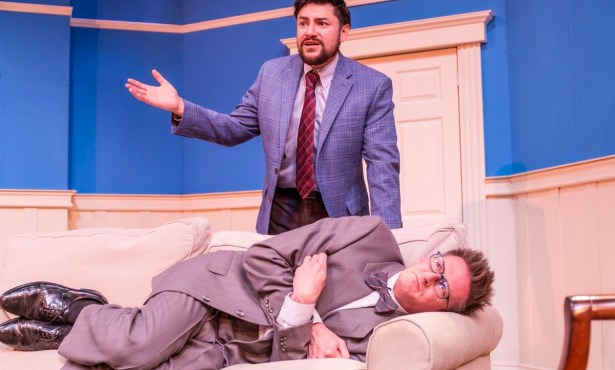Catalan Violist Jordi Savall Writes History with Music
Pre-Renaissance Man
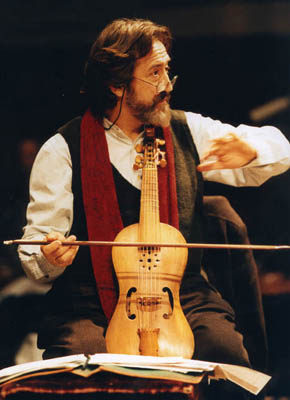
The viola da gamba, or viol, occupies a special place in the history of music. No longer a guitar, not yet a violin, the instrument is played between the legs (“da gamba”) like a cello and tuned in fourths like a lute. Tonight at the Lobero Theatre, Catalan artist Jordi Savall, the greatest living practitioner of the viola da gamba and an outstanding musicologist, will lead his early music ensemble, Hesprion XXI, in what is sure to be among the most unusual, intellectually challenging, and musically compelling concerts of the season. Lost Paradises, presented by CAMA as part of its Masterseries at the Lobero, employs 17 performers including a vocal group, La Capella Reial de Catalunya; a soprano soloist, Montserrat Figueras; and two narrators. It is the story of two lost worlds, both known as Hesperia, and it’s an enormously ambitious undertaking, but Savall, who is something of a superstar in the world of early music, has demonstrated an uncanny ability to coax not just exquisite music, but radical thought and historical analysis out of his ensemble and their period instruments.
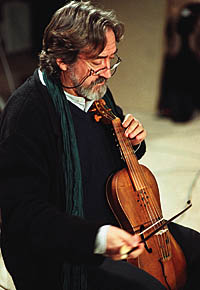
In Search of Lost Opportunities
Beginning in the first century ce and traveling to the Renaissance by way of the far reaches of “Hesperia,” Lost Paradises weaves spoken interludes devoted to the recitation of primary sources in their original languages seamlessly with music from the same places and periods. The entire two-hour historical narrative evokes the mystery and passion of Muslim Spain before the expulsion of the Jews, and of the Americas immediately before and during the voyages of Christopher Columbus. As with Yo-Yo Ma’s Silk Road Project, there is a thesis behind the music and its presentation-an idea about how Eastern and Western cultures intertwined and crossed over from the late-classical through the early-modern period. And, as with much of the greatest historical scholarship in any medium, there is also an implicit message in the form of a reflection on all the opportunities for genuine cultural exchange that have been lost during the intervening centuries. Savall’s truly amazing recorded output, mostly on his own Alia Vox label, runs to more than 200 items, many of which are elaborate double-CD sets that come housed in the back and front covers of beautiful, lavishly illustrated hardcover books.
History in Multiple Dimensions
The initial impact of these striking packages, filled as they are with historical essays and primary documents rendered not just in Catalan, French, English, Italian, and German, but also in Arabic and Hebrew, can be overwhelming. But throughout time, the extraordinary grace and range of the music draws the listener back into the total experience, which becomes progressively more fascinating with repetition. Through the flexible medium of Savall’s viol-led extended consort, huge expanses of world history come alive. In an age of diminished expectations for the scope and intellectual ambition of classical programming, this organization stands out as a genuine phenomenon. CAMA boardmember and programming guru Steve Cloud said he has been trying to get Savall for a number of years in any format; he believes Savall is “one of the great musicologists of our lifetime. What he has done to recover music from minimal archives and use it to look at the broadest possible historical movements is extraordinary.” Although Savall plays the Berkeley Festival & Exhibition with some frequency, he seldom travels with both Hesprion XXI and La Capella Reial de Catalunya. The Christopher Columbus: Lost Paradises project has not been heard live in the United States until this tour.
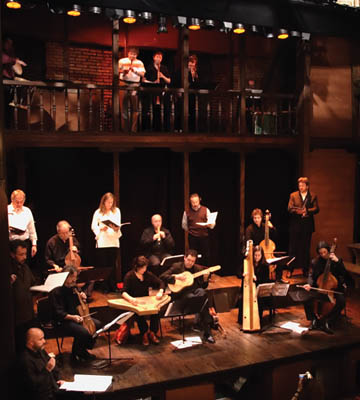
With so much going on, it can be difficult to do justice in print to this music as music. How does one reconcile ideas like the speculation contained in the accompanying book that Christopher Columbus may have been Jewish with the lilting sound of an ancient oud? To those who may be put off or simply confused by this unexpected conjunction of early music period performance research and grand revisionist history, relax. To the kind of eclectic musical sensibility nurtured by jazz, world music, and alternative radio, Savall and Hesprion XXI will come as a classical revelation. It’s as though the gorgeousness of acoustic, stringed instruments and medieval chanting were suddenly set loose from the cliches and familiarity of their conventional associations and allowed to run free through the most dynamic and soulful sonorities and rhythms of Morocco, Al-Andalus, and the Levant.
The Shock of the Old
The recordings are exquisite, but more importantly, the performances, right down to the last syllable of the recitations, are lit up with passion and scholarship. Whether Columbus is shipwrecked off Cape St. Vincent or married in Portugal, the ensemble’s instrumentation and approach modulate swiftly from one integrated new whole into another, all perfectly tuned to the content. By turns energetic and languorously beautiful, Savall’s sonic universe is all his own and, no matter how far he roams through time or space, disarmingly self-consistent.
There’s a special kind of delight that comes with the discovery of an artist whose work suggests not just a new wrinkle in what has come before, but a new reality. The fascinating thing about Lost Paradises is this new reality has the weight and density of history, and in fact represents the living manifestation of people and things that may not be as fully accessible to contemporary hearts and minds in any other form. As Cloud remarked, “The period between the 1st and 15th centuries was a peculiar time in history. The fissures between some of the basic groups that are so polarized today-Muslims and Jews, or Christians and indigenous Americans-had not yet fully opened, and in places like 14th-century Iberia, there was an extreme cultural integration that goes beyond what we can now imagine. Savall is saying that a walk through the town center of Granada in that era could potentially have yielded a cultural experience just as rich and varied as this collection of music.”
Jordi Savall aims at nothing less than making these crucial centuries in world history and their missing and mixed cultures speak through his music. The program encompasses everything from Nauhatl poetry to Columbus’s travel journals and the actual decree that ordered the expulsion of the Jews from Spain, and each spoken piece is carefully chosen for its ability to embed the music deep within the web of history. The accompanying scholarship enhances the music’s meaning and heightens its emotional impact. When it works-and it will be interesting indeed to see if the hypnotic effect of the recorded work can be achieved in concert-Savall’s grand project erases conceptual boundaries and uncovers eras as big as continents.
4•1•1
CAMA presents the American premiere of Christopher Columbus: Lost Paradises on Thursday, February 14, at 8 p.m. at the Lobero Theatre (33 E. Canon Perdido St.). For tickets or more information, call 963-0761 or visit camasb.org.

